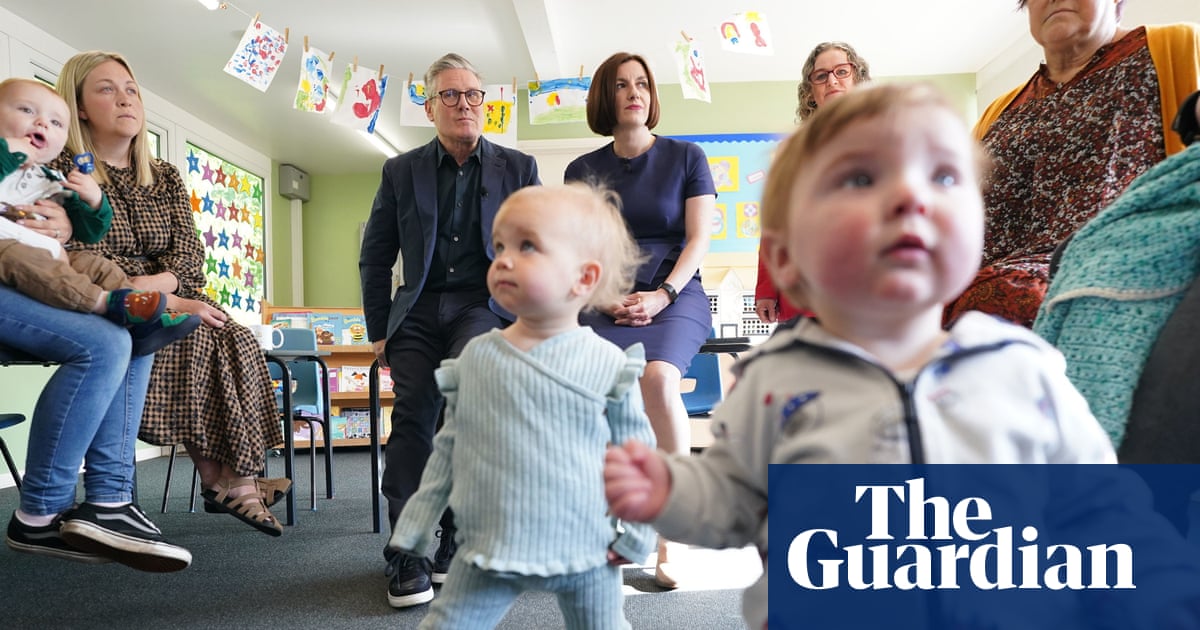
Three hundred new state nurseries will open in England’s schools by next September, the education secretary, Bridget Phillipson, has promised, as the government hurries to find places before the introduction of free childcare.
Phillipson’s department is under extraordinary pressure before next September, when 30 hours of free childcare begins for eligible parents of children from the age of nine months. Labour has said it would fulfil the promise by the previous government, despite warnings about the demands on staff and nursery places.
Phillipson said in an interview that she would launch a callout this month for schools in England with empty classrooms resulting from lower demand on school places to be converted into state nurseries, with the aim of 300 new nurseries opening by next September.
Schools will receive funding from April 2025. By the time of the introduction of free places, 80% of childcare costs will be paid by the state, but there are significant concerns in the sector about recruitment.
Phillipson has told parents they may not get their first-choice childcare place. “We’re committed to doing it, we’ve got to ramp up the number of staff and we’ve got a real focus on that,” Phillipson said.
The beginning of the scheme would test the new system and how to implement it. She said there was a significant appetite from schools to open the provision, especially because of how it would help children prepare for school.
“What schools say is that they know it makes a really big difference where children have had a high quality early education when they arrive at school, and anything that they can do to support children to make progress ahead of starting formal education makes a big difference to what they’re able to do as a school,” Phillipson said.
“So there’s real enthusiasm to deliver more nursery classes within primaries from schools themselves and from school leaders. Often for parents who have already got children in school it’s incredibly convenient to be able to drop off your child at the same place, but also the connections a school can build, the progress a child can make when they are there for the year ahead of starting at school.”
Phillipson said there were still underlying doubts about the system of free hours, which often meant parents paid substantial top-up fees to private providers to fill the gap in their operating costs. “I am conscious that for many people the system still isn’t working as it should. If you were to build a system from scratch you wouldn’t start from here,” she said.
Because of the substantial costs of the scheme, Phillipson said it was crucial the government could show the benefit, not only in terms of help for parents and for women re-entering the workforce, but on child development.
It comes amid worrying statistics from primary schools that report rising cases of children arriving at school still in nappies and with significant language delays.
“We need to make sure that as part of that we’re using the money that is being invested to drive up standards, to make sure that children are arriving at school ready to learn, to make sure that staff have got the support that they need, the training progression,” she said. “There is a need for wider reform alongside delivering the places that parents have been promised.
“It’s about making it easy for parents to take up the entitlements that they’ve been promised, but also making sure that when children arrive at school they haven’t already begun to slip behind.”
In Rachel Reeves’ speech on Monday, the chancellor spoke about another significant education investment, the introduction of free breakfast clubs in primary schools, and defended her plan to put VAT on private school fees, which has been repeatedly attacked by the Conservatives.
Phillipson said fees at private schools could broadly not be said to be within the reach of ordinary people making sacrifices. “The fees have gone up massively in recent years, and private schools are beyond the reach of the majority of parents in our country,” she said.

